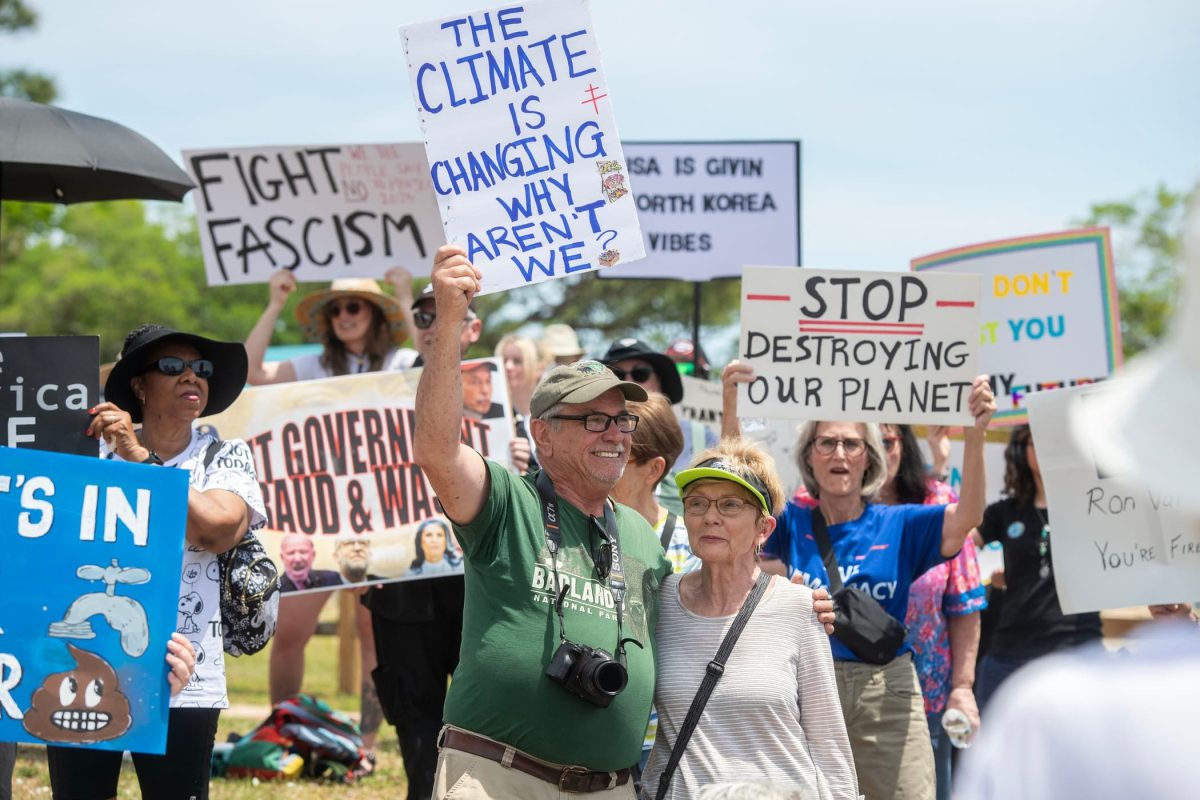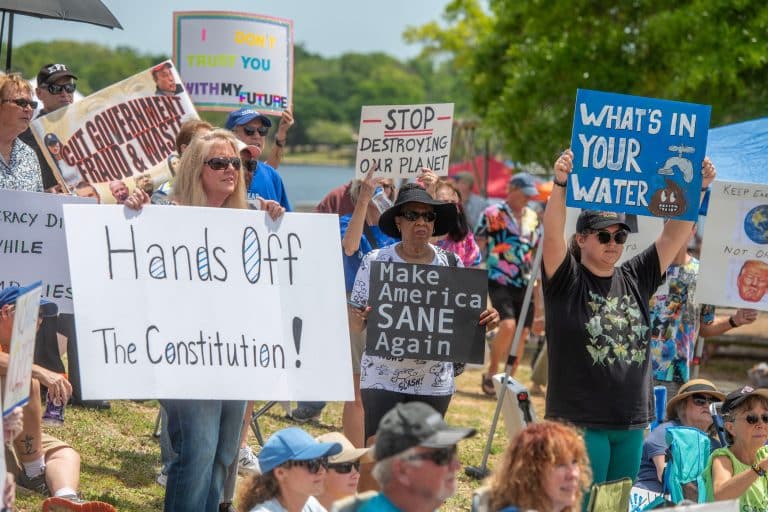People participate in Earth Day activities every April 22. The first event was held in 1970. Now, each year, events are organized on April 22 to raise awareness about environmental concerns. Right now, Earth Day-related protests of Donald Trump’s actions and policies are happening. Protests started a few days before Earth Day on April 18, 2025. The protests will continue through April 30, 2025.
Organizations have worked together on events featuring a variety of pressing issues. Cleaning up projects, protest marches, and pickets are some of the events. The official Earth Day area of focus this year is renewable energy. In particular, increasing clean electricity availability is an aim. Some protests focus on ensuring productive environmental legislation stays in place. Others focus on drawing attention to new legislation. In addition, protest topics have included reactions to education cuts and concerns about preserving democracy.
Earth Day Focus Topic for 2025

The first set of organized Earth Day events was in 1970. This year, events raising environmental awareness were organized for five hundred fifty towns and cities. EARTHDAY.ORG’s purpose is to “educate and activate the environmental movement worldwide.” The 2025 area of environmental focus was renewable energy. Of particular interest was the idea of increasing the prevalence of clean electricity. Tripling by 2030 the amount of available clean electricity was a stated goal.
Activism and Protests
Earth Day organizer Denis Hayes states that this year’s events contain “some introspection… and finding strategies.” Along with the logistical brainstorming and environmental discussions, events this year feature organized demonstrations. There have been ongoing protests around the country. According to Newsweek, “Americans are taking to the streets around Earth Day to voice discontent.”
This outpouring of protests is in response to the environmental approach of Donald Trump’s administration. The first protests were held on April 18, 2025. The official April 22 Earth Day fell on a Tuesday this year. Therefore, the largest preponderance of climate activism events was scheduled for Saturday, April 19, 2025. There will be continued protests through April 30, 2025. According to The Guardian, along with protest marches, there have been “pickets and cleanup events.”
Overview of Subjects Raised
One topic of protests is the general rolling back of climate and clean energy policies. For instance, the Union of Concerned Scientists (UCS) expressed concern about a proposed budgetary plan. This plan would remove “clean energy policies that have proven… transformational.” The UCS states that current policies support “the next generation of the United States’ economy.”
Another aim of the protests has been to raise awareness about upcoming environmental legislation. For instance, there was a New York City Earth Day rally in favor of the NY HEAT Act. Newsweek states that the NY HEAT Act is “a priority law for environmental activists.” Proponents of the bill state that it will lessen energy costs and remove fracking subsidies.
Topics besides climate and the environment have featured in the protests. There have been protests to defend the democratic process in the United States. Protestors have also spoken out against education cuts. The Guardian states that one event was called “All Out on Earth Day.” The “All Out on Earth Day” event featured pro-democracy organizations. According to The Guardian, the event advocated for “the right to live free, healthy lives.”
Context for 2025 Discussions
Denis Hayes has been involved with Earth Day since its beginning. Hayes has followed environmental policy and advocacy through the years and finds current trends worrying. He states that next year will be a time for productive election organizing. Hayes states that the event this year can involve collaborating to make local environmental improvements.
Also, environmentally-focused and generally productive conversations can extend over several days during this year’s protests. Organizers have collaborated to raise awareness about many pressing issues. These issues affect people locally, nationally, and globally.








